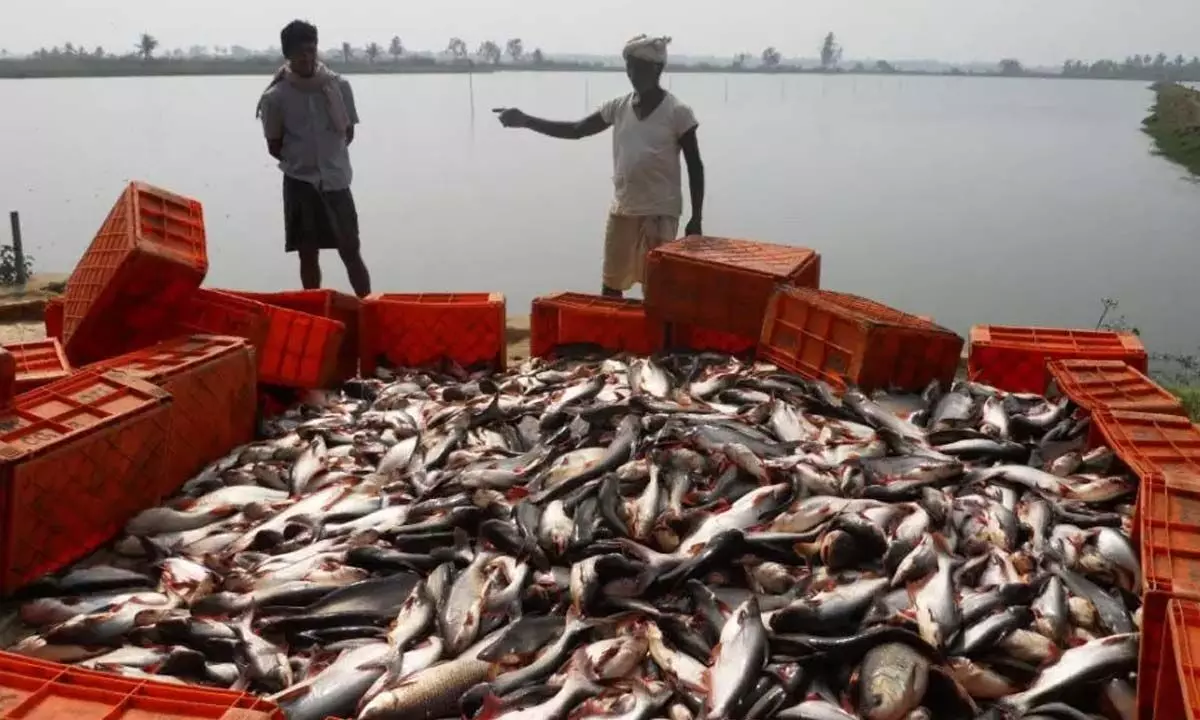Marine fisheries go scientific in South, technology interface emerging

Marine fisheries go scientific in South, technology interface emerging
These technology integration tools will enable thousands of inland fishermen in India to become potential exporters of sweet water fish varieties
It is one of the advantages of technology transfers from the elite research institutions into the market and the field, every inland and reservoir fisherman will reap a rich dividend, thanks to the new technology integration and navigational electronics and self-imposed reasonable restrictions by the fishermen organisations while fishing has made all the four maritime states (Karnataka, Andhra Pradesh, Tamil Nadu and Kerala) in the South richer in fisheries resources both marine and inland. These technology integration tools will enable thousands of inland fishermen in India to become potential exporters of sweet water fish varieties.
Fisheries scientists in Mangalore, Kochi and Chennai have been at the forefront of research in these technologies which include rapid field-level monoclonal antibody-based Kits for detection of residues of antibiotics and pesticides in fish and shellfish. Antibiotics such as oxytetracycline, sulfadimethoxine, and pesticides - as chlorpyriphos enter fisheries waters due to human activity such as aquaculture, agriculture and animal husbandry.
Ultimately these antibiotics and pesticide residues accumulate in fish and shellfish which is a serious concern from a human and fish health point of view and need to be monitored It could be recalled that Indian exporters of sweet water fish and shrimps faced an international embarrassment after the European Union had rejected several hundreds of containers in the last few years complaining of antibiotic residues. But those days are behind us and we are now sure that our broodstock is antigen free, we can now compete in the international market including the European Union and the United States in both marine and sweet water fish and shrimps.
Though the kits were developed sometime back by the scientists of the College of Fisheries in Mangalore, the results have been impactful on the detection of antigens in broodstock and white spot disease among the sweetwater shrimps.
The brilliant marine scientists at the college also took care that the fruits of research reached the inland fishermen at an affordable cost which they can handle themselves on the field and get results. With capture fisheries (marine fisheries) becoming unviable due to the cost involved, inland fisheries like tank fisheries, reservoir fisheries, farm side fisheries, and brackishwater mollusc culture will benefit to a great extent.43 varieties of sweetwater fish, which constitute 54 per cent of the total of 10 million tons of fish produced belong to the sweetwater fish including conventional varieties like Katla, Rohu and Mahseer.














